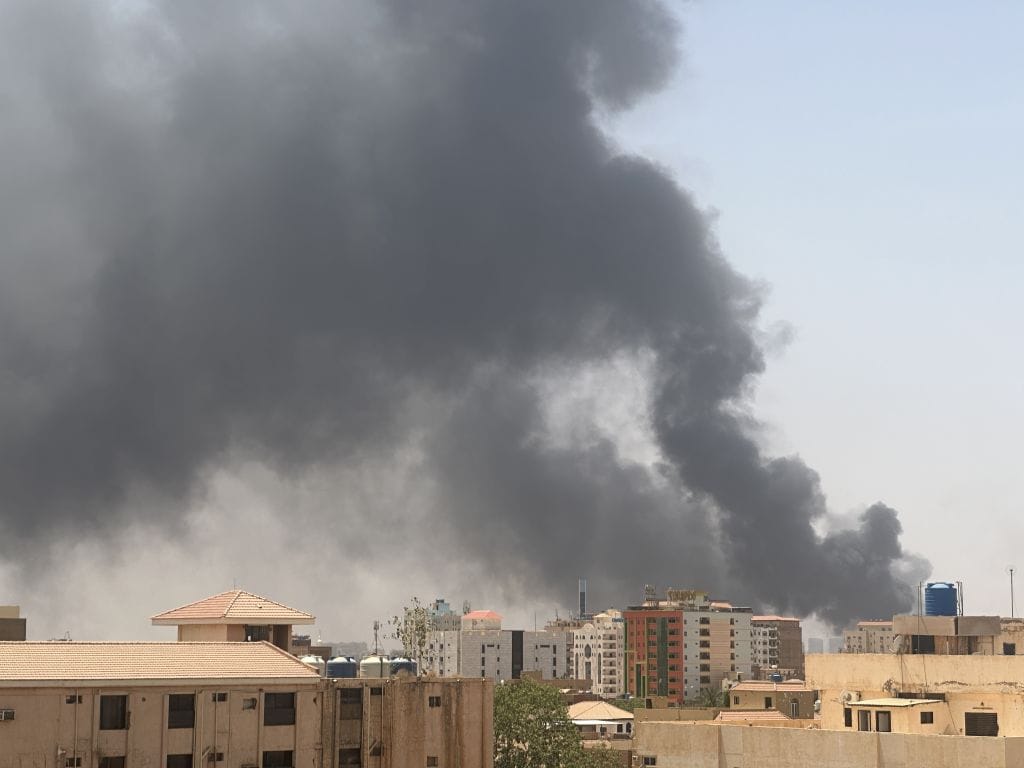Tensions in Sudan’s war-ravaged Darfur region escalated sharply this week as the paramilitary Rapid Support Forces (RSF) launched a new offensive on El Fasher, prompting fierce fighting and heavy civilian casualties. In response, armed factions allied with the Sudanese Armed Forces (SAF) firmly rejected an RSF call to evacuate the city, accusing the group of using deception to conceal military failures.
The RSF had offered safe passage to SAF units and allied groups, urging them to withdraw from El Fasher “in the interest of peace and humanitarian considerations.” But Mohamed Adam Kosh, commander of the Joint Force alliance and head of the Sudan Liberation Movement – Minni Minawi faction in North Darfur, denounced the offer as insincere.
“The RSF’s offer is a smokescreen,” Kosh said. “We have seen them lure people with promises before, only to attack and abuse those who try to flee. El Fasher will not fall. It will be our base to liberate Darfur and beyond.”
The offer came after the RSF launched a coordinated assault involving artillery, drones, and ground troops on several fronts. According to the army’s 6th Infantry Division, the offensive was repelled with heavy losses inflicted on the attackers. The army claimed that around 600 RSF fighters, including a senior brigadier general, were killed and 25 military vehicles destroyed during the fighting.
Yet the human cost has been devastating. Sudan’s military said 45 civilians were killed in two days of RSF shelling, with neighborhoods in southern, northern, and western El Fasher bombarded indiscriminately. Tuesday alone saw five civilian deaths and at least ten injuries, as hospitals struggled to treat the wounded amid ongoing air and ground attacks.
The siege of El Fasher has created a dire humanitarian crisis. Food, water, and medical supplies are critically scarce, and conditions have deteriorated further since the RSF seized the nearby Zamzam displacement camp on April 14. While the RSF claims to have facilitated evacuations for thousands of civilians, rights organizations have reported widespread violations, including killings, looting, sexual violence, and arbitrary arrests along escape routes.
The RSF’s call for safe passage was also viewed with suspicion due to its alliances with other rebel groups, including the Sudan Liberation Movement – Transitional Council and the Gathering of Sudan Liberation Forces. These groups had previously announced plans to allow civilian movement toward Tawila, but local reports indicated the routes were anything but safe.
Kosh vowed that the Joint Force and other allied factions would stand their ground in El Fasher and not negotiate under pressure.
“The RSF should surrender. We will pursue them wherever they go,” he said. “El Fasher will remain defiant against every mercenary and agent working to tear Sudan apart.”
As the battle for El Fasher intensifies, both sides show no signs of retreat. With civilians trapped in the crossfire and no ceasefire in sight, the city has become the latest epicenter of Sudan’s brutal civil war.



